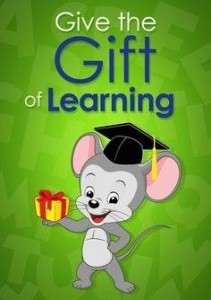Take Your Power Back…Remove Your Lenses!
Our experiences shape how we see situations and therefore, how we (re)act to life. Be conscious of what you want out of life, where you stop yourself and where you limit yourself.
Podcast: Play in new window | Download
Subscribe: Apple Podcasts | Android | RSS
Why Can’t you Be More Like Your Sister?
Anxiety is on the rise in children as failure is not looked as an opportunity. Also, our children are compared all through their schooling life based on a system that does not support failure.
Podcast: Play in new window | Download
Subscribe: Apple Podcasts | Android | RSS
Action & Anxiety Changes Things (A.C.T.)
Amazing results come in life when we change our habits. Anxiety causes the same feelings and body changes as excitement does. People transform when they work through these feelings.
Podcast: Play in new window | Download
Subscribe: Apple Podcasts | Android | RSS
Learning To Walk…All Over Again!
If we learned to walk as adults, there would be a lot of people not walking around. Why? Because as we go through life, we get a Delete file, the “All The Things That Can Go Wrong file” and we give up. Fail often and fail early! As well, give celebration, support and encouragement to those who fail.
Podcast: Play in new window | Download
Subscribe: Apple Podcasts | Android | RSS
00-What is Parenting With a Twist
We enable the everyday parent, just like you to raise hopeful, thriving and confident children that will leave home success-ready. Our trusted signature “With A Twist” success system has been giving families peace of mind for over twenty years.
Podcast: Play in new window | Download
Subscribe: Apple Podcasts | Android | RSS
Love of Learning: Math
Love of Learning: Math
Math seems to be one of the subjects that children struggle with the most. The Foundational Skills Assessment results for Nanaimo shows that a full third of students in Grade 4 and Grade 7 are not yet meeting expectations. The results are similar for the whole of Vancouver Island (http://www.bced.gov.bc.ca/reporting/district.php)
What makes math so challenging? There are several theories, but what it comes down to is that in each grade there are fundamental foundational skills that need to be learned. If last year’s skills are weak, then the child has trouble learning this year’s fundamental skills. It becomes a progressive problem that frustrates teachers, students, and parents alike. The student and parents are told “more practice,” but not really told what to practice or how.
Some ideas for helping your child to love to learn math:
Games and play are great. They engage both of you; the learning is almost a by-product of the game. If it bores you – it probably bores your kids too! Not only that, but it makes math relevant.
Below is one fun idea for each grade from K – 4. Get your older kids to help, invite friends over; hire a fantastical tutor from a company like us Tutoring…With A Twist!
K –Try using your child’s favourite snacks. Have them count them, let them organize them into faces or towers. Let them snack (can you say subtraction?)
Grade 1 –Play dough is great and so is baking. How many teaspoons in a tablespoon – lets count. What shapes can we make?
Grade 2 – Open a play store with monopoly money (use round numbers as prices) –Open a café with friends of your child and sell the “snacks” they eat.
Grade 3 – Play an adapted version of war. Take out the face cards and Aces =1. Deal the cards amongst the players. Each player puts down a card; whoever calls the product (*)/quotient (/) of the cards gets to keep them. The player with the most cards at the ends wins! (Remember to take the time to let your child come up with the answers)
Grade 4 – Pizza! Make at least 2 pizzas (or buy them). Let your child(ren) help pick the toppings and help in the prep if it’s appropriate. Cut them into different sizes (8 slices, 6 slices, etc.) A tasty way to learn fractions and equivalents.
Tutoring…With A Twist tutors not only support learners in every subject area; we also support them with a predetermined life-skill. By helping learners develop the tools they need to succeed in the classroom, we also help them develop the tools to succeed in life.
Love of Learning: Reading
Love of Learning: Reading
Reading is another subject that children struggle with. The Foundational Skills Assessment results for Nanaimo shows 23% of students in Grade 4 and 29% Grade 7 are not yet meeting expectations. The results are similar for the whole of Vancouver Island (http://www.bced.gov.bc.ca/reporting/district.php)
What makes reading so difficult? There are several factors such as phonemic awareness (letter sounds), exposure to reading/books, and /or a language based learning disability such as dyslexia. I believe that part of the problem is because children are not taught to love reading, rather that reading is something they “MUST” do and it can be take “HARD” work and be “BORING”.
Being a teacher, I thought my children should have come out of my womb knowing how to read! When my son’s grade three teacher called me in to suggest that there were comprehension issues with my son and that perhaps we might need to consider that there was something “wrong”, I had to admit that it was simply because he wasn’t reading. How could he understand the questions asked when he wasn’t reading the material. I emphasized to the teacher that I had done everything on “the” reading checklist to ensure he would be an early reader and a veracious reader. However, my son taught me something that wasn’t on “the” checklist: I didn’t see what he wanted to read as the right readable materials. When my son and I sat down to talk about this non-reading issue and how it was starting to affect his schooling, he was able to suggest to me that graphic novels were where it was at for him. They engaged him. And guess what? He started coming to the library with me enthusiastically and whizzing through comprehension questions at school!
Some ideas for helping your child to love to learn reading:
First, explain why reading is important, fun, and rewarding. Good reading skills help you find interesting information and be very entertaining. It can enrich your life and help you learn about different people, places, cultures, or how to build a rocket ship!
Second, model reading. Spend some time every day reading to your child and helping them sound out words and letters (phonemic awareness). Have plenty of reading materials around: books, magazines, newspapers. Have them in print or electronic form. Libraries are great places to get books and the Vancouver Island Regional Library has a subscription to Zinio, one of the largest online magazine retailers. You can download and read a very large variety of magazines for free!
Games also make it fun to learn reading. The types of games you play can be tailored to the age of your child, and the complexity of the words. Try:
Word walls: write words on index cards (or print them on business card paper). If you use two sets you can put some words up on the wall, and the other use a deck. Get your child to match words from the deck to the wall.
Eye spy: words that rhyme, start with (ch – chocolate), or ends with (-ing eating). This will help children become familiar with the whole word, rather than just the beginning or the end.
Word hunt: take the index cards and place them face down. Have the child hunt for a specific word or words.
Word twister: use green painters tape to put letters on your floor, or chalk the outside area, make a twister wheel with cardboard and a t-pin. Have your child(ren) spell words with their bodies.
Word hopscotch: same idea as above, only have them spell out different words and sound out the letters as they hop.
There are also a number of online games. A quick Google search will help you find the ones that work for you.
If your child has dyslexia or other learning problem, it may be best if you work with a professional to help your child develop to their fullest.
Tutoring…With A Twist tutors not only support learners in every subject area; we also support them with a predetermined life-skill. By helping learners develop the tools they need to succeed in the classroom, we also help them develop the tools to succeed in life.
Love of Learning: Spelling
Love of Learning: Spelling
Spelling is one of those subjects that children are either naturally good at or struggle with. Spelling has become more challenging with the advent of texting and chatting which have developed their own lexicon (c u 8 – see you later) and the heavy reliance on spellcheckers, which don’t catch all misspelled words (war v. wart).
There are two different types of memory used when learning spelling. Visual memory (orthographic) and spelling memory. Visual memory is what the words visually look like in print. Spelling memory is the memory of letter sequences and sounds. The following article provides a lot of information on how children learn to spell. http://www.scholastic.com/teachers/article/how-children-learn-spell
Some ideas for improving spelling: yours and your child’s!
Word Wall: Word walls are most useful to Grade 3. Keep the words current and relevant to what the children are learning. Include the Dolch word list, word families and the 44 sounds of the English language. http://specialed.about.com/od/literacy/a/dolch.htm
Finger Texting: When reading aloud, follow the text with your finger.
Magnetic Letters: Use magnetic letters on your fridge; leave each other silly notes.
Practice makes Perfect: Practice a little, but often.
Meaning of the word: Explain the meaning of the word to your child, where it came from (etymology). Only 12% of English words are actually spelt the way they sound.
Game and Apps’: There are plenty of games and apps for teaching spelling to children. A quick Goggle search will help you find the ones appropriate for your family.
Ideas for different Learning Types:
Ideas for learning styles adapted from “Spelling: Connecting the Pieces” by Ruth McQuirter Scott and Sharon Siamon.
Visual Learners: write out difficult words and leave out the letters that they are having trouble with, highlight tricky letters in the word, write problem letters in a different colour, ask them to write a word several different ways and pick the one that looks right, sort words by a visual pattern (drop the silent ‘e’ when adding –ing: hiking, joking, etc.), use picture cards
Auditory Learners: sound things out and exaggerate the consonants that are hard to tell apart (p, b, d, t), ask what sounds they hear at the beginning or end of the word, have them pronounce the silent letters in words and underline them, clap or tap out the syllables of the word, make songs
Kinesthetic Learners: cut out letters from felt or sandpaper – let them practice spelling, use a dry erase board or wipe off crayons, draw pictures of the word meaning, use word tiles (Scrabble, Boggle), use alphabet magnets, teach typing
WHAT KIND OF A LEARNER IS YOUR CHILD? Take our QUIZ NOW to find out! Simply click on the picture below and fill out the form! In the subject line, make sure to put “FREE QUIZ”.
Tutoring…With A Twist tutors not only support learners in every subject area; we also support them with a predetermined life-skill. By helping learners develop the tools they need to succeed in the classroom, we also help them develop the tools to succeed in life.
Love of Learning: Writing
Love of Learning: Writing
Winter has arrived on the Island…hope everybody was able to be safe and enjoy it! Where we live it snowed for 3 days straight. I wasn’t able to “write home about it” as my original home is Ontario and I don’t think they would have given me too much sympathy!
Our final blog on the “Learning to Love” series is on WRITING!
Writing seems another struggle for students. The Foundational Skills Assessment results for Nanaimo shows that 23% of students in Grade 4 and 19% of Grade 7 are not yet meeting expectations. The results are similar for the whole of Vancouver Island. (http://www.bced.gov.bc.ca/reporting/district.php)
Some ways to encourage writing practice:
Let your child write naturally. Do not work on correcting spelling and grammar as much as encouraging the writing practice. After the story is finished work on proofreading and editing. Praise the story ideas, characters, and other elements of the story to encourage them. See last week’s blog on how to teach spelling at home.
Make a writing corner, near your word wall list.
Let them write out the grocery list; make writing practical. If they want a treat, have them write a few words on why you should let them. Write notes to each other; they can be silly or express emotions that might be difficult to do otherwise.
Provide writing prompts; sometimes is just that they don’t know what to write.
Have them write a story about a familiar character (tv, games, websites, etc.)
“Publish” their stories. Write down the stories they start to tell. Start with you writing the words and the child drawing the pictures. Advance to providing the pictures, or better yet your child providing them, and have the child write the story. Create covers with construction paper. Include these stories in reading time.
Tell a relay story. This can be done orally, while waiting in traffic, or share a piece of paper between you. Writing is more than pen to paper – it’s the creative ideas too.
Start a family newsletter to keep in touch with relatives.
Encourage them to keep a diary and/or a journal!
Have them write a letter to a celebrity, the editor of your local paper or a family member.
Have them experience an item with all of their senses. Have them touch it, smell it, listen to it, look at it, draw it, and if safe taste it. This will help them develop descriptive writing.
Tutoring…With A Twist tutors not only support learners in every subject area; we also support them with a predetermined life-skill. By helping learners develop the tools they need to succeed in the classroom, we also help them develop the tools to succeed in life.
Giving the Gift of Confidence…
“A year from now you may wish you had started today.”
The Gift of Confidence, Resiliency & Empowerment
While some kids expect money or toys for their graduation, the gift of confidence, resiliency & empowerment will be remembered long after the money has been blown through or their toy has broken. Adding a non-toy gift to your gift line-up can help ensure that you give your child a gift that will last a lifetime.
Toys are great, don’t get me wrong! Some are awesome, like the kind where you read the fine print as you wrap it on Christmas Eve and it says “batteries not included”. So, you then run out to the only store open which of course has batteries, but they cost almost as much as the present you bought! Then, when Christmas morning comes and the toy is on for, oh about five minutes, you wish you hadn’t read the fine print ;)! Then, there are the gifts that the kids play with the packaging more than they play with the actual toy. Somehow the box it came in or the bubble wrap it was packaged in is just more exciting. Then, there is “the” gift…the one they have been anticipating all year. It’s ohh’d and ahh’d over and then in a week’s time it’s sitting with all the other toys until “the” next big thing comes along. Oh wait, there was even a movie made about that ;)!
Are you ready to explore the giving the gift of confidence, resiliency and empowerment now?! Let’s explore buying your child a gift certificate for tutoring. Your child will:
• enhance skills which are crucial to his/her every day life;
• advance in core subjects;
• increase communication skills and improve their self-discipline;
• have guaranteed success beyond the classroom;
• invest in themselves & develop self-motivation;
• reap the rewards of developing organization & planning skills.
Hands up for those of you thinking that your kids won’t like it. I ask you to think of it this way:
• How excited will your child be when they are able to put their hand up in class confidently?
• How amazing will your child feel when they sit down to right a test with confidence and ease?
• How stress-free will your evenings be when you know that your child’s learning is already been taken care of?
• How great will the discussion around the dinner table be when there isn’t the need for any nagging about school grades?
• Now imagine your child actually enjoying school!
We’d love to extend this gift to you and your’s!
Thank you for trusting us with your family this coming holiday season.
Recent Comments
-

Amber Scotchburn
I would love to keep sharing information with you!
Please let me know what else you would like to hear about,
Amber -

Amber Scotchburn
Thank you :)!
Where did you share this?
Amber -

Amber Scotchburn
Thanks :)!
I’d love you to put the link to the results that you found about the Mid East, perhaps I can put it in a future podcast.
Amber -
Google
Google
Wonderful story, reckoned we could combine a handful of unrelated data, nevertheless definitely worth taking a search, whoa did 1 find out about Mid East has got additional problerms too.
-
Google
Google
Here is a good Blog You may Locate Interesting that we encourage you to visit.








